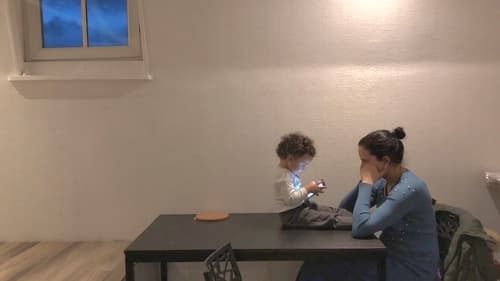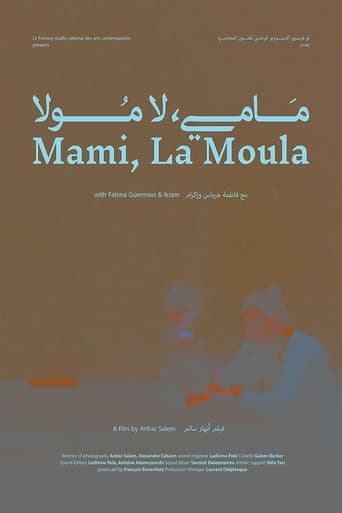Mami, La Moula
Fatima, in the beginning of her twenties. She cooks, takes care of her child and does her everyday house cleaning. Gradually, her life begins to change, she worked as a cleaner, her husband abused her, she asked for help, and then escaped away to live in a social house. After escaping with the hope of having a better life, she is suddenly faced by another problem related to the status of her child. The director was shooting with an iPhone since meeting Fatima to make a semi-fiction movie. But instead, Anhar kept the footage and continued shooting with her personal phone for documenting Fatima's new dramatic changes more closely, in the sake of keeping the same relationship and distance. At the same time, the film tries to emphasize Fatima’s emotional/occasional status throughout the film by using more vivid images connected to her situation, places, and old memories as an ex-dancer back in Algeria. Fatima, in the beginning of her twenties. She cooks, takes care of her child and does her everyday house cleaning. Gradually, her life begins to change, she worked as a cleaner, her husband abused her, she asked for help, and then escaped away to live in a social house. After escaping with the hope of having a better life, she is suddenly faced by another problem related to the status of her child. The director was shooting with an iPhone since meeting Fatima to make a semi-fiction movie. But instead, Anhar kept the footage and continued shooting with her personal phone for documenting Fatima's new dramatic changes more closely, in the sake of keeping the same relationship and distance. At the same time, the film tries to emphasize Fatima’s emotional/occasional status throughout the film by using more vivid images connected to her situation, places, and old memories as an ex-dancer back in Algeria. Fatima, in the beginning of her twenties. She cooks, takes care of her child and does her everyday house cleaning. Gradually, her life begins to change, she worked as a cleaner, her husband abused her, she asked for help, and then escaped away to live in a social house. After escaping with the hope of having a better life, she is suddenly faced by another problem related to the status of her child. The director was shooting with an iPhone since meeting Fatima to make a semi-fiction movie. But instead, Anhar kept the footage and continued shooting with her personal phone for documenting Fatima's new dramatic changes more closely, in the sake of keeping the same relationship and distance. At the same time, the film tries to emphasize Fatima’s emotional/occasional status throughout the film by using more vivid images connected to her situation, places, and old memories as an ex-dancer back in Algeria. Fatima, in the beginning of her twenties. She cooks, takes care of her child and does her everyday house cleaning. Gradually, her life begins to change, she worked as a cleaner, her husband abused her, she asked for help, and then escaped away to live in a social house. After escaping with the hope of having a better life, she is suddenly faced by another problem related to the status of her child. The director was shooting with an iPhone since meeting Fatima to make a semi-fiction movie. But instead, Anhar kept the footage and continued shooting with her personal phone for documenting Fatima's new dramatic changes more closely, in the sake of keeping the same relationship and distance. At the same time, the film tries to emphasize Fatima’s emotional/occasional status throughout the film by using more vivid images connected to her situation, places, and old memories as an ex-dancer back in Algeria.



 AD
AD